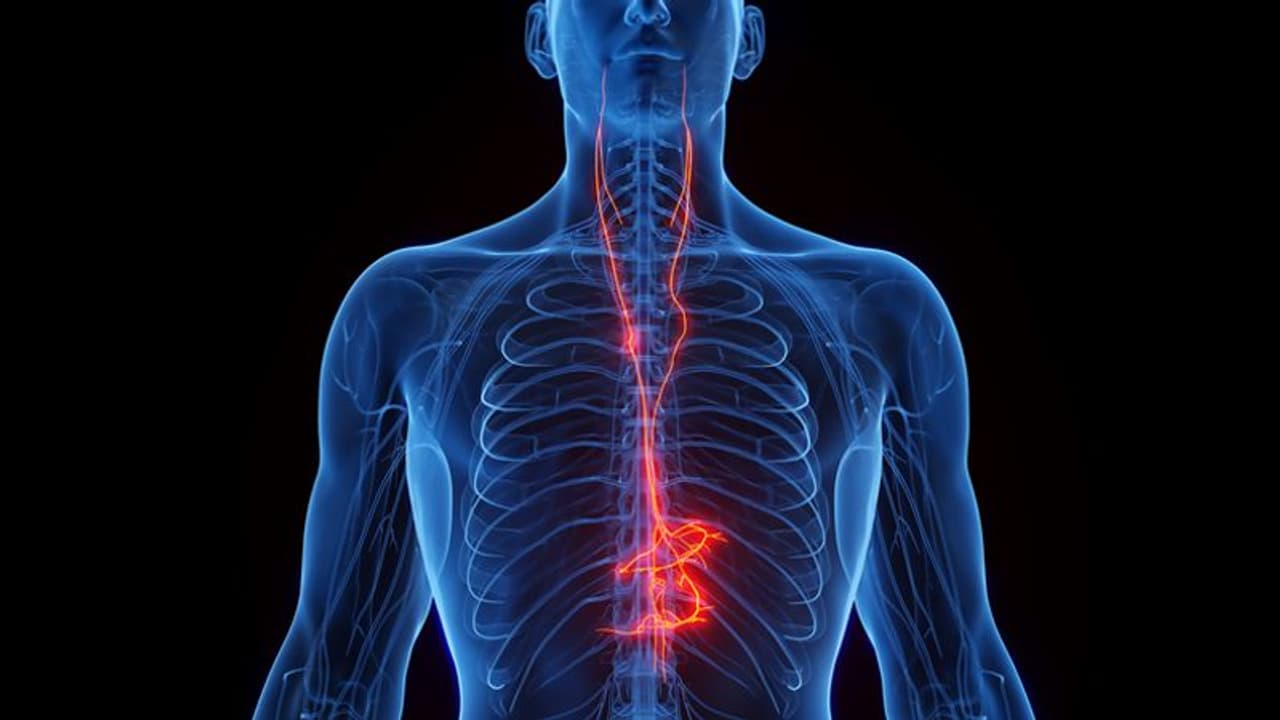The vagus nerves, also known as vagal nerves, are the principal parasympathetic nervous system nerves.
Our bodies need care and attention. Som we only need to be aware of what they are capable of with a little support from the outside world. With the correct stimulation, the longest nerve in our body, the vagus nerve, can help us with conditions such as stress, depression, and gastrointestinal issues, as well as increase our blood flow and other functions.

Also Read: 'OMG 2': Why was Aarush Varma not allowed to watch his film? Read THIS
The vagus nerves, also known as vagal nerves, are the principal parasympathetic nervous system nerves. This system regulates involuntary body activities such as heart rhythm, digestion, and the immune system. The nerve connects the brain to the neck, chest, and abdomen.
These nerves are also in charge of causing coughing, sneezing, swallowing, and vomiting. Vagus nerve stimulation offers numerous advantages. It helps digestion and stress, lowers blood pressure, boosts blood flow to vital brain areas, and so on. There are several techniques to activate your vagus nerve to get treatment from the diseases listed above.
A small device is placed in your chest, under your skin, to stimulate your vagus nerve in a more advanced way. The device and the vagus nerve are linked by a wire. It transmits painless electrical messages to the brain via the nerve, relieving the brain of erratic electrical activity. The device could be programmed to stimulate for thirty seconds every five minutes. As licenced by the FDA (Food and Drug Administration of the United States), this stimulation is used to treat epilepsy, depression, and even strokes.
What gives this nerve such a broad reach? The vagus nerve is the longest of the cranial nerves, which exit the brain directly rather than passing through the spinal cord. It starts at the base of the skull and goes down the neck and into the abdomen, where it collects signals from the viscera and helps regulate the body's autonomic activities, such as digestion, sleep, and inflammation.
Around 80% of its messages are sensory, travelling from the inner organs to the brain, while the remaining 20% flow from the brain to the body, regulating things like bowel contractions and heart rate.The vagus nerve is an important component of the parasympathetic nervous system, which is the "rest and digest" system that helps the body relax during times of low stress. "The vagus nerve dominates when you are relaxed, sleeping, or in a restorative phase," explains Gregor Hasler, a psychiatrist at the University of Fribourg in Switzerland who has written about the gut-brain connection.
Also Read: Ananya Pandey HOT Saree Look: The 'Dream Girl 2' actress flaunts her curves in sexy saree
